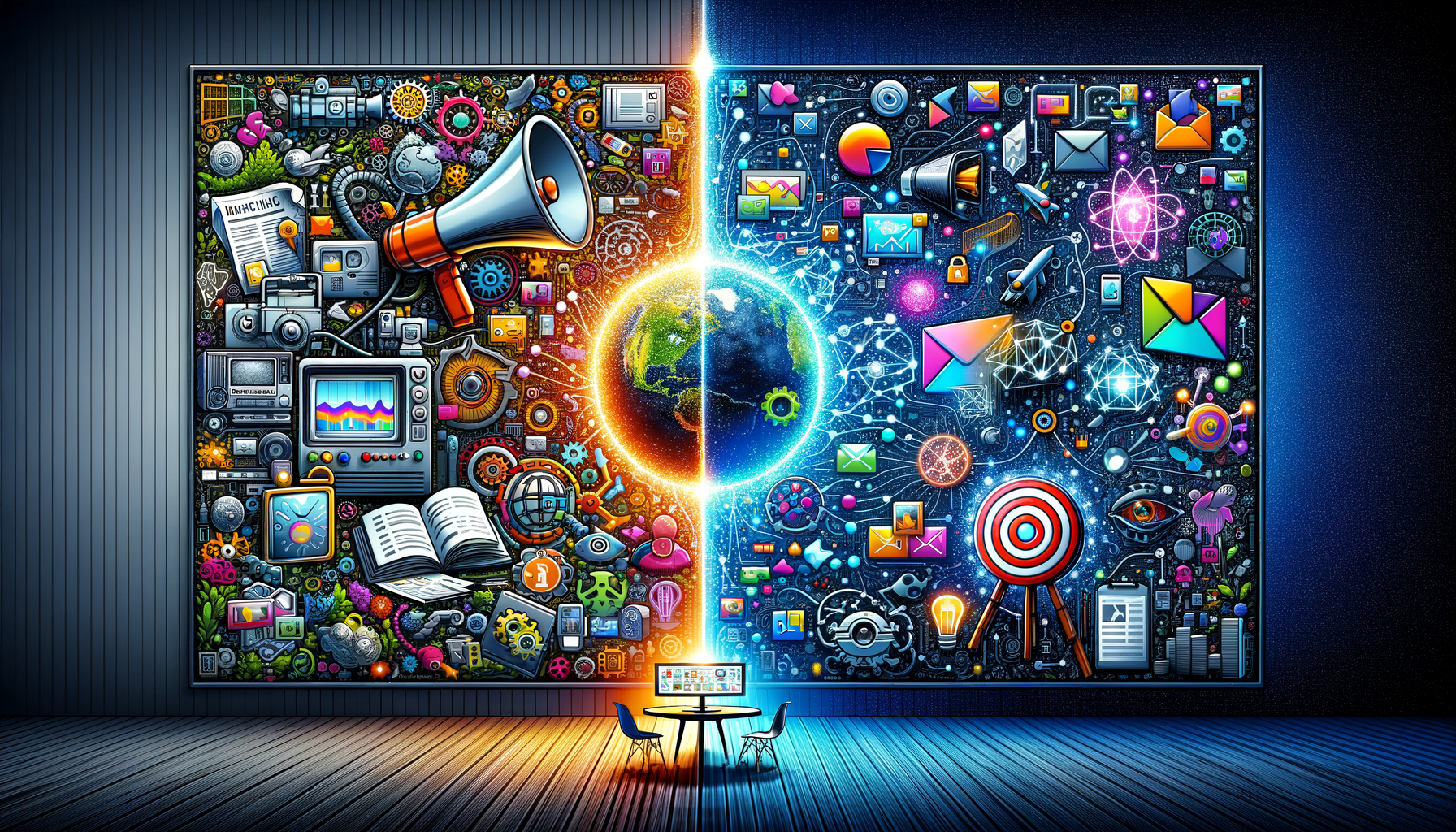“Revolutionizing Digital Marketing Landscape: The Emergence of AI-Generated Content”

As we usher in a new age of technological advancement, Artificial Intelligence (AI) is progressively becoming an integral part of our daily lives. Its infusion into various sectors of the economy is reshaping how we interact, communicate, shop, and conduct business. Of these areas, digital marketing stands out, witnessing a significant paradigm shift owing primarily to AI and its related technologies. AI-generated content is steadily transforming this multi-billion-dollar industry by enhancing marketing efficiencies while expanding brand reach.
AI goes beyond marketing automation and predictive analytics. Given its intricate design, it can generate content that can engage customers and drive conversions, making it a revolutionary tool for marketing experts. In their arsenal, marketers now have the vastness of AI’s learning capabilities, delivering targeted content with precision. The foundation of this lies in the AI’s unerring ability to track, analyze, and identify patterns and trends from a massive pool of data, offering key insights about customer behavior and preferences.
AI can create data-driven customer profiles, understanding individual needs, and tailor specific content for each person, boosting engagement and conversion. The AI’s sophisticated algorithms analyze internet users’ online activities, decisions, preferences, buying habits, and more. Thus, AI-generated content is not random — it is tailored, personalized, and targeted, exceptionally effective in relevance marketing.
As AI continues to finesse its data analysis skills, it enhances SEO or search engine optimization. Keywords, meta-descriptions, and backlinks, the bedrock of SEO tactics, can be selected and placed strategically by AI tools, optimizing the website for highest possible visibility, part of broader AI-generated SEO content strategy.
Moreover, AI’s data-crunching capabilities allow it to understand customer segments better and identify future trends. This predictive analysis enables marketers to anticipate consumers’ future needs and craft marketing strategies accordingly.
Another powerful tool that AI offers to digital marketers is chatbots. Crucial for providing real-time responses to consumer queries, chatbots are becoming the primary customer service interaction in the digital domain. Advanced AI, powering these intelligent bots, can not only respond to queries but also provide product recommendations based on consumer preference, enhancing the personalization of the brand’s interaction with its customers.
AI has made headway into content creation, providing marketers with a tool to create engaging content consistently. AI’s algorithms analyze vast amounts of consumer data, identify patterns, predict trends, and churn out content that reflects these insights. By using AI, digital marketers can ensure high-quality content that resonates with the target audience and provokes engagement. It is important to note that AI is not replacing human creativity but augmenting it by allowing marketers to focus more on strategy and less on repetitive tasks.
The integration of Big Data and AI has opened the realm of predictive customer modeling, which enables digital marketers to predict consumer behavior and tailor their marketing strategies accordingly. By using AI, marketers can effectively segment their market and personalize communication, ensuring maximum reach and engagement.
The power of AI extends to email marketing, which has long been a staple of the digital marketing strategy. Advanced AI can automate the entire process, from drafting personalized email content based on individual consumer behavior to selecting the most effective send times, driving increased open rates and click-throughs.
By virtue of AI’s capability to gather and analyze vast amounts of data in real-time, marketers can make informed data-driven decisions. AI’s role in data analytics is not limited to past and present data analysis, it paves the way for predictive analysis.
The influence of AI on the realm of advertising is remarkable. Programmatic advertising, which involves buying and selling ad inventory in real-time, has been revolutionized by AI. It enables highly targeted, fully automated ad placements, resulting in increased efficiency and greater ROI.
AI’s application in social media marketing is vast and impactful. Deep learning algorithms help analyze posts, hashtags, likes, shares, and comments, providing insights about consumer sentiment, trending topics, and key influencers. By understanding these insights, marketers can ensure their social media strategies are in line with what the audience is interested in.
While AI is transforming digital marketing, it’s crucial to understand its limitations. AI depends heavily on data quality and can falter if the data pool is flawed or incomplete. Furthermore, the absence of human intuition, creativity, and ethics, often makes AI-generated content rigid and impersonal. Despite its enormous potential, for AI to be successful, it needs to seamlessly integrate with human creativity and intuition.
As technology evolves, AI continues to reshape digital marketing in myriad ways. While AI-generated content is revolutionizing the industry by improving content quality, targeting, and personalization, it also challenges marketers to think differently. It compels businesses to invest in technology, change the way they have traditionally carried out marketing endeavors, and learn new ways to engage customers.
Simultaneously, as consumers, we need to acknowledge the growing role of AI in shaping our online experiences, whether through personalized advertising, or AI-crafted content. Even in the privacy of our digital lives, it is AI that often subtly communicates with us.
In conclusion, the incorporation of AI into digital marketing has ushered a renewed era of precision, accuracy, efficiency, personalization, and predictive capabilities. Far from replacing human marketers, AI amplifies their efforts, allowing them to conduct more effective outreach, engage in more meaningful ways, and create more impactful campaigns. The limitations of AI-generated content only make the collaboration with human creativity more vital. As we navigate the digital marketing landscape with AI, we can anticipate witnessing a transformation like never before. While challenges are inherent, the opportunities that AI brings forth are far greater and undoubtedly ushering us into an exciting new era of marketing innovation.

Recent Comments